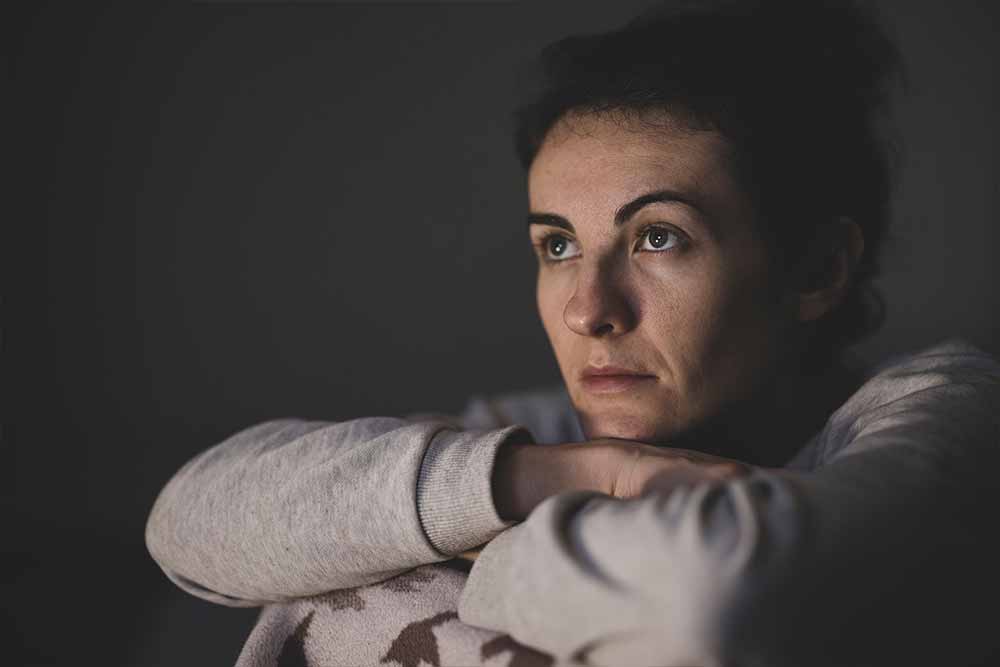According to the Centers for Disease Control and Prevention (CDC), over 25 million new sexually transmitted diseases (STDs) occurred in 2018 alone – with most of these cases being treatable. That’s right, some of the most common infections that occur among young people are easily curable when treated appropriately but if they are left untreated – they can cause a whole host of complications.
The risks of leaving STDs untreated
To put it simply, leaving an infection alone and hoping that it will go away without treatment is never a good idea. Even if the symptoms disappear, the chance that the infection has passed away by itself is slim.
Without treatment, STDs can pose a serious risk to both yourself and your sexual partner(s) – increasing your risk of serious complications and putting your partner(s) at risk of transmission.
Always remember that testing positive for an STD is not the end of the world. If you are experiencing symptoms or you think you may have contracted an STD, it’s important to get checked and treated – your future self will thank you for it! LetsGetChecked has a range of discrete at-home STD tests for anyone looking to get tested quickly and privately and their Standard STD Test is one of the best at-home STD test kits that you can buy online and take yourself at home.

LetsGetChecked
Standard 5 STD test
Chlamydia & Gonorrhea
HIV, Syphilis and Trichomoniasis
Free Shipping, Discreet packaging
Finger prick & Urine sample
$149.00
Test for 5 of the most common STDs with the popular Standard 5 LetsGetChacked at-home STD test. Using the same labs as physicians & hospitals, LetsGetChecked brings sexual health testing to your door at an affordable price, with treatment available for positive cases of Chlamydia and Trichomoniasis
Read our LetsGetChecked for information and opinions on tests and services.
Untreated Chlamydia
Chlamydia is one of the most common STDs among young people. It’s often referred to as the ‘silent infection’ because it's known to show little to no symptoms and – meaning Chlamdyia can often go unnoticed.
If symptoms do occur they might include
- Abnormal vaginal or penile discharge
- Burning sensation when peeing
If chlamydia goes untreated in men, it rarely causes many complications. However, for women, it can cause pelvic inflammatory disease (PID). Complications associated with PID include infertility, long-term abdominal pain, and ectopic pregnancy.
Don’t forget that with the right treatment, chlamydia can be cured. If you suspect you have chlamydia, check in with your doctor or with an at-home lab test.
Untreated Gonorrhea
Gonorrhea is the second most common STD, after chlamydia. Most cases are asymptomatic which means it’s common to have gonorrhea and experience little to no symptoms.
When symptoms are present, they can include
- Abnormal vaginal or penile discharge
- Burning sensation or discomfort when peeing
Untreated gonorrhea can cause complications in both men and women. Similar to chlamydia, in women, if gonorrhea isn’t treated, it can cause PID. In men, it can cause epididymitis which, although rare, can lead to infertility.
Gonorrhea can be cured with early detection and the right course of treatment. If it's possible that you have contracted gonorrhea, get tested and treated to avoid any potential complications down the line.
Untreated Syphilis
Syphilis is an STD that can cause serious complications without treatment. The infection develops in stages and each stage is typically associated with different symptoms.
As mentioned, the symptoms of syphilis change over time and might even come and go, some of the common indicators of syphilis can include
- Small ulcers on or around your genitals
- Sores on your mouth, lips, or hands
- Rash on the palms of your hands or soles of the feet
If syphilis is left untreated, it can cause complications that impact the heart, brain, and nerves such as heart failure, seizures, and shooting pains.
Once detected and treated, syphilis is curable. If you are experiencing symptoms or if it’s possible that you have syphilis, it’s crucial to get tested and treated early – you can do this with your doctor or from home with an at-home self-test.
Untreated HIV/AIDs
HIV (human immunodeficiency virus) is a virus that attacks the immune system. If the infection isn’t treated, it can develop into AIDs (acquired immunodeficiency syndrome).
Many people with HIV report experiencing symptoms, which are usually flu-like and might include
- Fever
- Night sweats
- Fatigue
- Muscle aches
Without treatment, HIV can progress through three stages with the final and most severe stage being AIDs. This can cause a damaged immune system and put you at risk of developing other serious infections (also referred to as opportunistic infections).
The only way to know if you have contracted HIV is through testing. If you are experiencing symptoms and think you may have been exposed to HIV, it’s important to get tested. Remember, early detection and treatment can slow and even prevent the progression of the infection.
Untreated Hep B
Hepatitis B is a liver infection that is caused by the hepatitis B virus (HBV). Most people infected with HBV will experience a short-term case. Still, the infection can become chronic for others which can increase the risk of liver complications.
Many people may experience little to no symptoms. If symptoms do occur, they can include
- Fatigue
- Change in eating habits
- Abdominal pains
- Jaundice (when your skin or the whites of your eyes turn a yellowish color)
If you know that you have been exposed to hepatitis B, your doctor can provide you with an injection within 24 hours of exposure that may help prevent you from falling ill with the virus. For chronic cases of hepatitis B infection, lifelong treatment may be recommended.
A simple blood test can help detect signs of hepatitis B in the body. Should you test positive, your healthcare provider will be able to offer advice on treatment and limit chances of complications or damage.

myLAB Box – Herpes Test
Genital Herpes Testing Kit specifically screens for genital herpes HSV-2. This test kit is a popular option for those who think or know that they have been in contact with this infection
$89.00

myLAB Box – Hepatitis B Test
Get tested for Hepatitis B in the comfort of your own home with the myLAB Box at-home hepatitis B test kit. Hepatitis B is a liver infection that is often classified as either “acute” or “chronic.” Both types are caused by an infection of the Hepatitis B virus.
$99.00

myLAB Box – Hepatitis C Test
Get tested for Hepatitis C with the myLAB Box at-home Hepatitis C test kit. Hepatitis C is a liver infection caused by the Hepatitis C virus (HCV). Hepatitis C is a blood-borne virus and can be transmitted by sharing needles or other injection equipment as well as through sex.
$79.00
Read our myLAB Box review for information and opinions on tests and services.
Untreated Trichomoniasis
Trichomoniasis also referred to as ‘trich’, is a common STD. The CDC estimates that only around 30% of people with the infection develop any symptoms.
If the infection does cause symptoms they may include
- Itching or burning in the genitalia
- Unusual discharge
Trich is known to be one of the most curable STDs which means it can easily be treated with medication provided by your doctor. If trich goes untreated, it can increase your risk of contracting other STDs.
You can test with your doctor for trich or opt to check in from home with a home lab test. Getting tested and treated will reduce the risk of experiencing any complications associated with the infection.
Untreated HPV
HPV is so common that nearly every sexually active adult will carry the virus at some point in their lifetime. There are hundreds of varieties of the virus, some are known to cause warts whereas others are associated with different types of cancer.
According to Mayo Clinic, the body usually fights the HPV infection before symptoms do appear however if the virus does cause symptoms it will sometimes cause warts which can vary in appearance depending on the strain of the virus.
Treatment for HPV will vary depending on the type of strain. It’s important to know that no matter the type – early detection and the correct treatment are key to reducing your risk of any complications associated with the virus including oral lesions and certain cancers.
If you are experiencing warts or suspect that you may have HPV, it’s important to speak with a healthcare provider you trust. Most HPV infections don’t cause cancer but checking in is key to avoiding complications and for your own peace of mind.
Untreated Mycoplasma Genitalium
Mycoplasma genitalium (M gen) is a bacteria that can be transmitted through sexual contact. Most people who test positive for the infection report experiencing no symptoms.
If you do have symptoms, it’s possible that they will include
- Burning sensation when peeing
- Unusual discharge
- General pain or discomfort in the genitalia
M gen can be treated with a course of antibiotics. If Mycoplasma Genitalium is left untreated, it can cause PID in women and epididymal-orchitis in men.
If you suspect that you have M gen, speak with your doctor about getting tested. With the correct treatment, you will reduce your risk of experiencing any complications or long-term risks.
Untreated Herpes 1 and 2
Herpes is one of the most common viral infections worldwide. There are two types: HSV-1 (associated with oral herpes) and HSV-2 (associated with genital herpes).
Herpes outbreaks are known to reoccur. If it is your first outbreak, you will notice
- Flu-like symptoms
- Tingling, itching, and small bumps or blisters in the area of infection
Herpes can’t be cured but antiviral medication can be used to help reduce the severity and frequency of outbreaks.
If you are experiencing symptoms or it's possible that you have contracted herpes, be sure to take the right steps to get tested and treated to avoid any discomfort or complications that can be caused by untreated herpes such as painful genital sores.
What happens when STDs go untreated
There is a small possibility that some STDs will develop no symptoms and sit dormant and undetected for long periods of time, but it is unlikely that they will fully heal. This leaves you at risk of developing more complicated symptoms further along the infection timeline. Which can pose serious health risks to you and the people you are in sexual contact with.
Image Credits
Featured Image – Photo by Francisco Gonzalez








